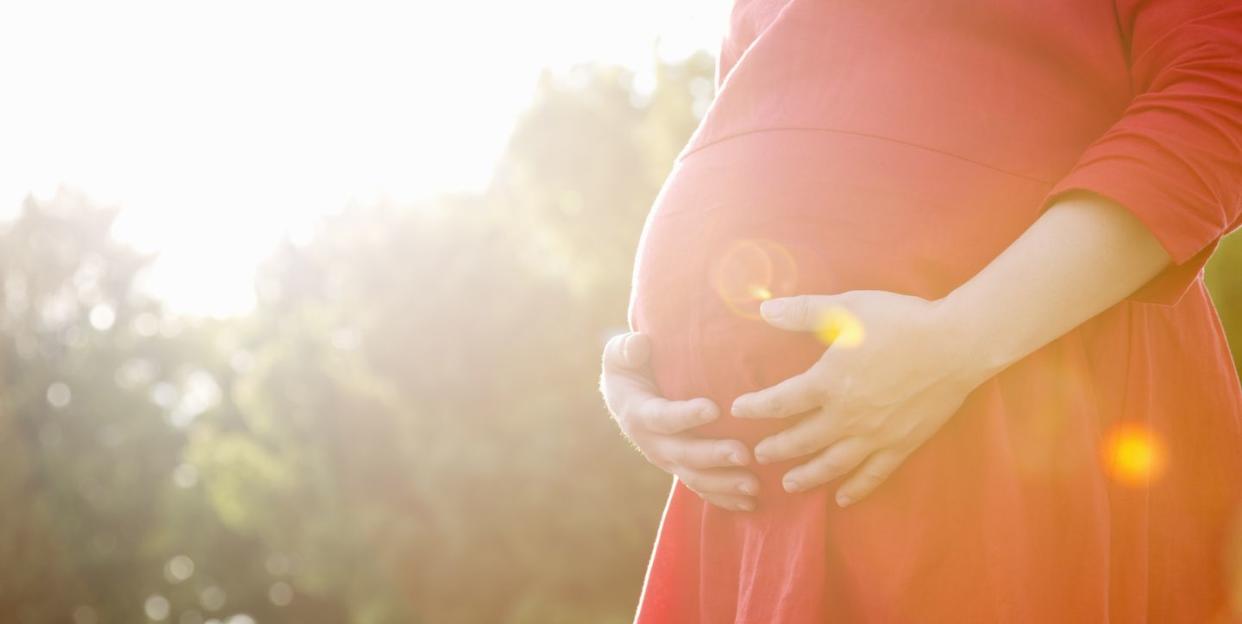Don't Let Anyone Tell You There's a "Best Age" to Have Kids

If you're planning on having kids or expanding your family, you've likely heard lots of (possibly unsolicited) "wisdom" about timing. Do it young, when you have lots of energy! Wait, so you can be more established financially! So ... which is it? When is the best time to have kids? The answer is the one you probably already knew deep down: There is no one, best age to get pregnant or have kids.
Is there a "right" time to get pregnant?
Only you, and your small circle of trust, will know when the time is right. "The decision to start a family should be based on many factors, including age and your readiness to be a parent," says Blair A. Bergen, M.D., F.A.C.O.G., F.A.C.S., chairman of the obstetrics and gynecology department at AtlantiCare Regional Medical Center in New Jersey. "Readiness can include being financially and emotionally prepared to have a child. Having candid conversations with your OB/GYN and primary care provider is important in making the decision and planning for a healthy pregnancy and delivery."
When does a woman's fertility start to decline?
When conversations arise about the best time to have kids, most of them center around fertility, and that certainly can be an issue. "Women are most fertile and have the best chance of getting pregnant in their 20s," Dr. Bergen says. "At age 25, the odds of conceiving after three months of trying are about 20%. Fertility gradually begins to decline at age 32, and after 35 that decline speeds up. At age 35, the odds of conceiving after three months of trying are roughly 12%. Then there's a steep decline in a woman's ability to get pregnant naturally in her 40s. Most women in their 40s can still have a healthy pregnancy and baby but the risks also increase significantly." Those risks can include c-section delivery, premature birth, low birthweight, birth defects, and stillbirth, along with gestational diabetes and preeclampsia.
Even then, that doesn't mean a woman can't have a baby if she waits. "As her age and risks increase, a woman’s likelihood of getting pregnant goes down because her body adjusts for this risk," Dr. Bergen says. "However, there is no maximum age limit for having a baby, and the oldest recorded age worldwide is age 66. Essentially any age is possible with modern medicine and in-vitro fertilization.”
Fertility isn't the only thing to consider when assessing readiness.
Finances and job security, though, have a lot to do with preparedness, too. These might tip the scales toward waiting: Studies show that kids born to older, more established parents do better later in life, while parents who have kids before they're financially ready are generally less happy than people without kids.
And financial security is just one part of an overall picture of mental preparation that needs to be in place in order to have kids. If you're not in a good, healthy state yourself, it's going to be harder to add caring for a child into the mix. "At every stage of a woman’s life, her psychological health and well-being is important," Dr. Bergen says. "Having good family support, managing stress, getting plenty of sleep and exercise, and having a healthy diet all contribute to overall wellbeing. Again, being open with her healthcare provider about any concern is important."
These reasons show why many women in the United States are choosing to wait. Currently, the mean age for a first child in the United States is 26.9, according to the most recent data available by the CDC. This number is on the rise; in the year 2000, it was 24.9, and in 1970, it was 21.4. The delay is due to a variety of socio-economic reasons, including women's greater participation inclusion in the workforce since the '70s and the high cost of childcare now. But it also illustrates how, when looking at studies about the best age to have kids, fertility shouldn't be the only ones.
You Might Also Like


